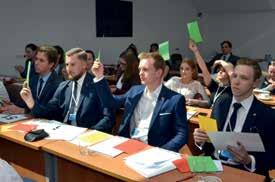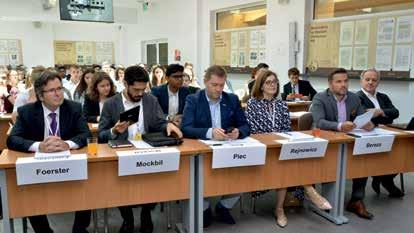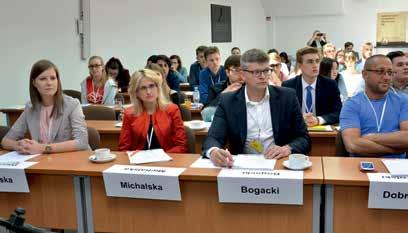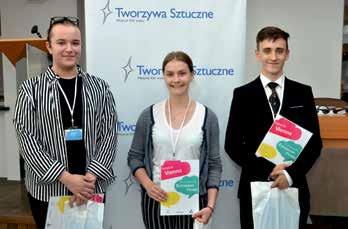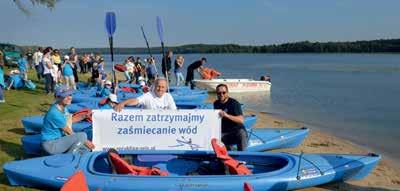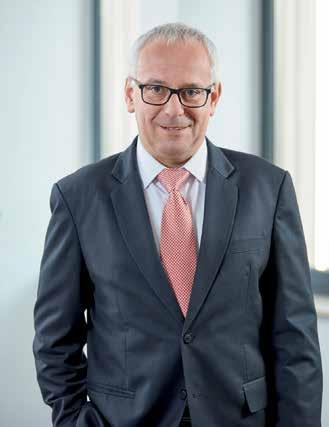
4 minute read
Education
Joint educational projects
The PlasticsEurope Polska Foundation also cooperates with external partners, getting involved in the implementation of educational projects and nationwide information campaigns which promote pro-environmental behaviors (non-littering, sorting waste) and the importance of recycling and energy recovery from plastic waste for the protection of natural resources and the environment. In 2018, the Foundation supported the jubilee 25th edition of the “Clean Up the World – Poland” campaign organized by the “Nasza Ziemia” [Our Earth] Foundation, and the celebration of the World Environment Day organized in Poland by the UNEP/GRID Center as part of the Zielona Wstążka #DlaPlanety [Green Ribbon #ForthePlanet] project. Also, as in previous years, workshops for children “Opakowanie – nie śmieć! Od selektywnej zbiórki poprzez recykling do nowych wyrobów” [Packaging – do not litter! From selective collections through recycling to new products] were held at schools, public libraries, and environmental education centers all over Poland, combined with a themed poster exhibition, lectures, and competitions on environmental subjects. The Foundation was also a partner in the “Recykling Górom” [Recycling for the Mountains] educational campaign promoting non-littering on mountain trails. PlasticsEurope Polska regularly supports educational events and projects organized by member companies. In 2018, a film contest for schools of the Płock region on the use of plastics as innovative materials in various applications was organized by Basell Orlen Polyolefins.
Advertisement
Educational programs for schools
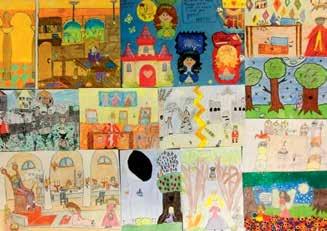

“Plastek i jego zaczarowane pudełko” [Plastek and his magic box] is the PlasticsEurope’s European program for elementary schools, introducing plastics-related subjects to younger learners through experiments they can carry out themselves. In Poland, the Foundation has been running this program since 2011, organizing free-of-charge workshops for early school education and science teachers in cooperation with methodology consultants and teacher training centers as well as member companies. Participating schools receive an educational package free of charge consisting of an experimental kit and a set of books for learners, as well as teacher aids. The project is accompanied by an art competition for learners (twice a year). In 2018, over 200 early school education teachers participated in workshops held in Koszalin, Słupsk, Chojnice, Bielsko-Biala, and Przemyśl. In total, between 2011 and 2018, the Foundation provided schools from all over Poland with over 1,650 educational packages, conducted 63 training courses with the participation of 1,710 teachers, and carried out 18 editions of the Plastek arts competition, with awards made to almost 1,000 learners. Last year, the Foundation set up the new website www.eksperymentyplastka.pl devoted to the “Plastek and his magic box” program and other educational
activities. The website is mainly addressed to teachers and offers a description of the “Plastek” program, dates of workshops for teachers, and results of the arts competitions. In turn, the “Tworzywa sztuczne – nowoczesne materiały” [Plastics – modern materials] educational project develops knowledge of polymer materials among older students, complementing chemistry curricula. Participating schools receive free-of-charge experimental sets to test the characteristics of plastics (samples of various polymers with an information brochure) and a set of books entitled “Plastics – modern materials” containing primary information on polymer chemistry, processing and use of plastics, and their role in environmental protection and sustainability, as well as on the plastics industry in Poland. In 2018, the educational sets were also distributed during the Educational Fair in Koszalin, teacher workshops organized by the Foundation, and other educational projects such as EYDC (see page 39). Interactive webinars for teachers, organized twice each school year, are an integral part of the project. Participants become acquainted with plastics-related issues, and receive a set of books and a set of plastics samples together with an informational brochure free of charge. In 2018, a total 1,120 copies of the book, including experimental sets, were provided.


European initiatives of PlasticsEurope: the EYDC Project
The third edition of the prestigious European Youth Debating Competition, organized by the PlasticsEurope association and the European Petrochemical Association, EPCA, included a series of learners’ debates in nine countries: Belgium and the Netherlands, Bulgaria, Croatia, France, Spain, Germany, Poland, Italy, and the United Kingdom. The objective of the competition is to engage young people in debate on the most important challenges facing the contemporary world by allowing them to publicly voice independent opinions and defend their arguments, and encouraging them to study natural sciences, technology, engineering and mathematics (STEM). In June 2018, as part of the project and in cooperation with the Young Leaders organization, which was coordinating debates in the individual countries, the Foundation organized a debate in the Faculty of Chemistry of Warsaw University of Technology on “Living, learning, working and moving in Smart Cities of the future: with or without plastics and petrochemicals?”. It was attended by 75 learners from 12 secondary schools from all over Poland. The young speakers were evaluated by a jury representing technical universities, industry, non-governmental organizations, and the media. The winning trio in the Polish debate participated in the final debate, held in Vienna in October 2018 during the 52nd EPCA Annual Meeting, where finalists from nine European countries discussed issues related to the contribution ofpetrochemicals and plastics to social sustainability in the digital era.


